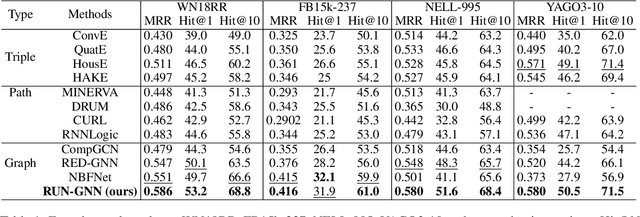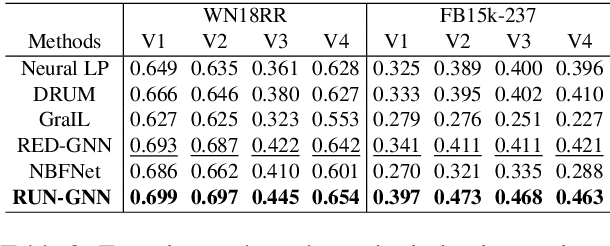Shuhan Wu
WithAnyone: Towards Controllable and ID Consistent Image Generation
Oct 16, 2025Abstract:Identity-consistent generation has become an important focus in text-to-image research, with recent models achieving notable success in producing images aligned with a reference identity. Yet, the scarcity of large-scale paired datasets containing multiple images of the same individual forces most approaches to adopt reconstruction-based training. This reliance often leads to a failure mode we term copy-paste, where the model directly replicates the reference face rather than preserving identity across natural variations in pose, expression, or lighting. Such over-similarity undermines controllability and limits the expressive power of generation. To address these limitations, we (1) construct a large-scale paired dataset MultiID-2M, tailored for multi-person scenarios, providing diverse references for each identity; (2) introduce a benchmark that quantifies both copy-paste artifacts and the trade-off between identity fidelity and variation; and (3) propose a novel training paradigm with a contrastive identity loss that leverages paired data to balance fidelity with diversity. These contributions culminate in WithAnyone, a diffusion-based model that effectively mitigates copy-paste while preserving high identity similarity. Extensive qualitative and quantitative experiments demonstrate that WithAnyone significantly reduces copy-paste artifacts, improves controllability over pose and expression, and maintains strong perceptual quality. User studies further validate that our method achieves high identity fidelity while enabling expressive controllable generation.
OneIG-Bench: Omni-dimensional Nuanced Evaluation for Image Generation
Jun 09, 2025Abstract:Text-to-image (T2I) models have garnered significant attention for generating high-quality images aligned with text prompts. However, rapid T2I model advancements reveal limitations in early benchmarks, lacking comprehensive evaluations, for example, the evaluation on reasoning, text rendering and style. Notably, recent state-of-the-art models, with their rich knowledge modeling capabilities, show promising results on the image generation problems requiring strong reasoning ability, yet existing evaluation systems have not adequately addressed this frontier. To systematically address these gaps, we introduce OneIG-Bench, a meticulously designed comprehensive benchmark framework for fine-grained evaluation of T2I models across multiple dimensions, including prompt-image alignment, text rendering precision, reasoning-generated content, stylization, and diversity. By structuring the evaluation, this benchmark enables in-depth analysis of model performance, helping researchers and practitioners pinpoint strengths and bottlenecks in the full pipeline of image generation. Specifically, OneIG-Bench enables flexible evaluation by allowing users to focus on a particular evaluation subset. Instead of generating images for the entire set of prompts, users can generate images only for the prompts associated with the selected dimension and complete the corresponding evaluation accordingly. Our codebase and dataset are now publicly available to facilitate reproducible evaluation studies and cross-model comparisons within the T2I research community.
CognTKE: A Cognitive Temporal Knowledge Extrapolation Framework
Dec 21, 2024



Abstract:Reasoning future unknowable facts on temporal knowledge graphs (TKGs) is a challenging task, holding significant academic and practical values for various fields. Existing studies exploring explainable reasoning concentrate on modeling comprehensible temporal paths relevant to the query. Yet, these path-based methods primarily focus on local temporal paths appearing in recent times, failing to capture the complex temporal paths in TKG and resulting in the loss of longer historical relations related to the query. Motivated by the Dual Process Theory in cognitive science, we propose a \textbf{Cogn}itive \textbf{T}emporal \textbf{K}nowledge \textbf{E}xtrapolation framework (CognTKE), which introduces a novel temporal cognitive relation directed graph (TCR-Digraph) and performs interpretable global shallow reasoning and local deep reasoning over the TCR-Digraph. Specifically, the proposed TCR-Digraph is constituted by retrieving significant local and global historical temporal relation paths associated with the query. In addition, CognTKE presents the global shallow reasoner and the local deep reasoner to perform global one-hop temporal relation reasoning (System 1) and local complex multi-hop path reasoning (System 2) over the TCR-Digraph, respectively. The experimental results on four benchmark datasets demonstrate that CognTKE achieves significant improvement in accuracy compared to the state-of-the-art baselines and delivers excellent zero-shot reasoning ability. \textit{The code is available at https://github.com/WeiChen3690/CognTKE}.
Towards Enhancing Relational Rules for Knowledge Graph Link Prediction
Oct 20, 2023



Abstract:Graph neural networks (GNNs) have shown promising performance for knowledge graph reasoning. A recent variant of GNN called progressive relational graph neural network (PRGNN), utilizes relational rules to infer missing knowledge in relational digraphs and achieves notable results. However, during reasoning with PRGNN, two important properties are often overlooked: (1) the sequentiality of relation composition, where the order of combining different relations affects the semantics of the relational rules, and (2) the lagged entity information propagation, where the transmission speed of required information lags behind the appearance speed of new entities. Ignoring these properties leads to incorrect relational rule learning and decreased reasoning accuracy. To address these issues, we propose a novel knowledge graph reasoning approach, the Relational rUle eNhanced Graph Neural Network (RUN-GNN). Specifically, RUN-GNN employs a query related fusion gate unit to model the sequentiality of relation composition and utilizes a buffering update mechanism to alleviate the negative effect of lagged entity information propagation, resulting in higher-quality relational rule learning. Experimental results on multiple datasets demonstrate the superiority of RUN-GNN is superior on both transductive and inductive link prediction tasks.
 Add to Chrome
Add to Chrome Add to Firefox
Add to Firefox Add to Edge
Add to Edge